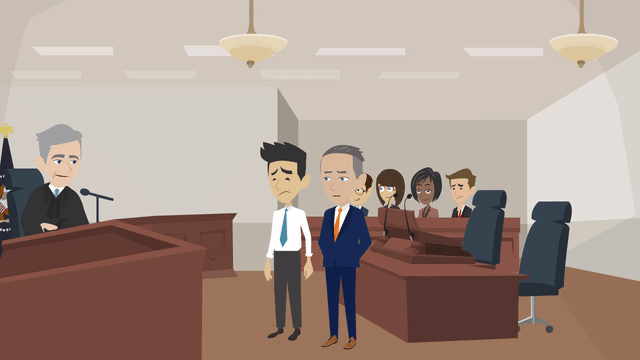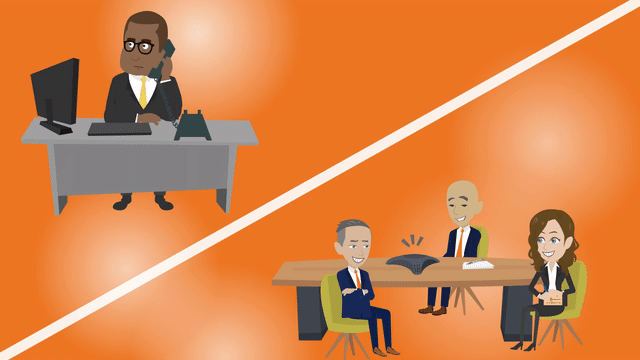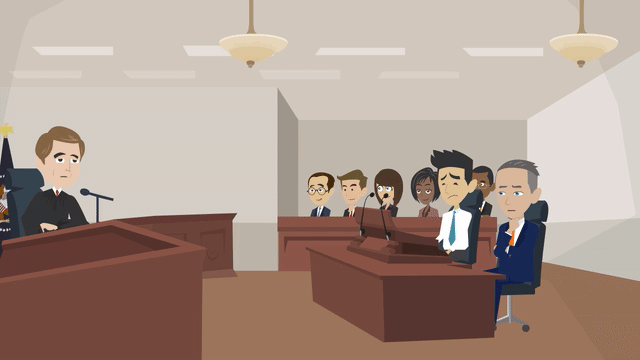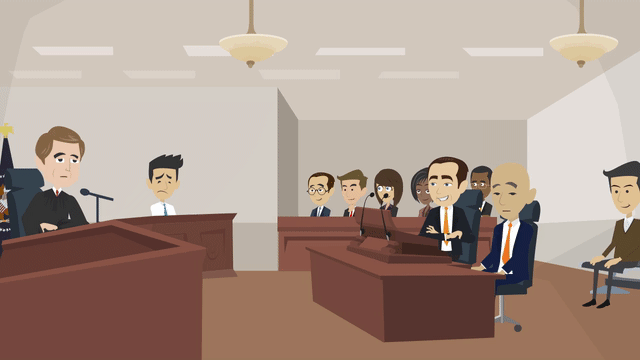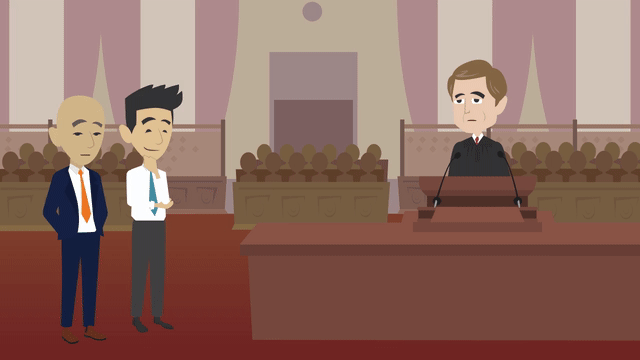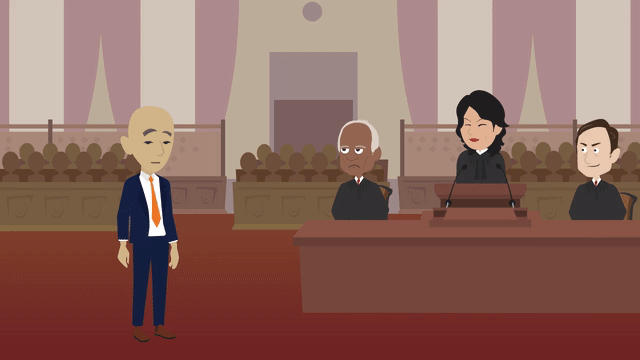Tax Crimes | Lawyers & Attorneys
Tax offenses, like other types of white-collar crime typically involve non-violent, financially motivated decisions. Tax violations may involve any number of crimes including failing to file a tax return, falsifying information on a tax return, failing to report total income, selling untaxed goods, criminal tax fraud, schemes to defraud including material fraudulent representations, and hiding or misleading information on out-of-state transactions. If you are charged with a tax crime or are under investigation for a tax crime or fraud, you should contact a criminal defense lawyer who handles tax crimes immediately.
Frequently Asked Questions About Tax Crimes
Our criminal defense lawyers provide answers to some important questions below.
Tax offenses, like other types of white-collar crime typically involve non-violent, financially motivated decisions. Tax violations may involve any number of crimes including failing to file a tax return, falsifying information on a tax return, failing to report total income, selling untaxed goods, criminal tax fraud, schemes to defraud including material fraudulent representations, and hiding or misleading information on out-of-state transactions. If you are charged with a tax crime or are under investigation for a tax crime or fraud, you should contact a criminal defense lawyer who handles tax crimes immediately.
Yes. Although New York State and Federal prosecutions have similar components, federal matters focus on your federal tax consequences and liabilities while New York has jurisdiction only over your New York state tax return. It is possible that one of your returns was proper whereas the other was not. If both have alleged improper information, both the federal and state governments can file charges against you, and both may proceed in their own separate courts. Importantly, not all tax cases are necessarily criminal, and some can potentially be resolved without a criminal prosecution. If you are contacted by the Internal Revenue Service or the New York State Department of Taxation and Finance, it is very important to contact an experienced Criminal Attorney who handles tax cases to help guide you through this difficult process.
In New York, you would likely be contacted by the Department of Taxation and Finance or Internal Revenue Service. It is uncommon for the state to immediately file criminal charges and seek seizure or garnishing of wages. In certain cases, New York law allows for the filing, or in relevant circumstances refiling, of past years’ tax returns. Ultimately the matter could end there, or perhaps there could be additional penalties owed. Regardless of whether there would be additional fees or fines, they are far preferable to defending the matter in criminal court.
Usually, tax crimes come in the form of intentionally acting in a way to avoid paying your taxes. This may include false information in your returns, under-reporting income, or not reporting any specific source of income. It also covers inflating legitimate deductions or falsifying one or more deductions completely. It is also a tax crime to assist someone in any of these scenarios – either in their filing or in creating false documents to cover for the fraud. Finally, it is a crime to not file your tax returns for three consecutive years where there is a tax liability.
Being selected for a tax audit does not automatically mean the government intends to charge you criminally, or even that they have uncovered any wrongdoing. However, even minor, or innocent mistakes can cause problems when uncovered during an audit. Usually audits are done either through the mail, or in-person at your home or business. Mail audits are usually requested by the tax agency for certain documentation or other supporting material you have that correspond with your return. These tend to be less onerous than when the agency wishes to meet with you at your home or office to review this information in person. It is important to involve experienced Certified Public Accountants if you are audited. If you receive a subpoena requesting the production of documents, you should contact a criminal lawyer who handles tax cases immediately.
Possibly. Even if you do not believe you did anything improper, any mistake the audit uncovers could potentially result in serious consequences. Therefore, you should consult with a criminal lawyer who handles tax cases who can talk with you and provide advice and guidance. It is also important to work with an experienced Certified Public Accountant that has worked with audits and criminal cases. Tax cases are serious and complex. Working with accountants and criminal defense lawyers who understand these types of cases will be beneficial for you.
Yes. Although an investigation may start as a civil inquiry, if any criminal conduct is identified you may be charged with a crime. If you are convicted of a crime, you face monetary penalties in addition to incarceration and a criminal record.
Perhaps. In many instances, criminal investigations can resolve by reaching a negotiated settlement to avoid criminal prosecution. If a settlement is reached, you can be ordered to stop performing a certain action or pay penalties, interest, and other monetary damages.
Yes. The prosecutor and the Judge will consider the seriousness of the tax evasion, the amount of money owed, your ability to repay the taxes, penalties, and interest and any other history you have. For these reasons, it is important to work with a criminal defense lawyer who handles tax prosecutions and an accountant as soon as you are contacted regarding any issues concerning your taxes.
In New York, any felony, including tax crimes, has a statute of limitations of five (5) years. Federally, the statute of limitations is six (6) years. Usually, the time begins to run after the last criminal act took place, which in many cases may be the filing of the return itself.
Yes. Aiding or assisting in a false tax return does not require being the last person to file it with the government. Others who may still be liable for improper returns include:
- Corporate Officers
- Corporate Tax Form Preparers
- Tax Shelters
- Promoters of not filing taxes
- Supplier of false information
- Your spouse
Yes. Your spouse is deemed to know what is submitted on a tax return that is filed jointly. However, if your spouse does not work with the finances or is not aware of any issues or problems with the return, your spouse may be able to claim innocence. If this occurs, the spouse will not be held responsible criminally or be responsible for amounts that are owed to the Internal Revenue Service or the New York State Department of Taxation and Finance.
Criminal Tax fraud requires that you have committed a tax fraud act. Fraudulent acts are defined by New York Tax Law §1801 and include the following:
- Failing to make, render, sign, certify, or file a return.
- Knowingly submitting a return with materially false or fraudulent information or which omits material information.
- Knowingly supplying materially false or fraudulent information for a return,
- Engaging in any scheme to defraud any tax imposed.
- Failing to remit any tax collected.
- Failing to collect any tax required.
- Intentionally evading paying of a tax.
- Providing false information or omitting material information from documents submitted claiming taxes do not apply to a given transaction.
Criminal Tax fraud in the fifth degree is any tax fraud act, of any amount. It is an A misdemeanor, meaning you face up to 1 year in local jail, 3 years of probation, fines, and court fees, as well as restitution in the amount defrauded.
Criminal Tax fraud in the fourth degree is any tax fraud act amounting to over $3,000. It is an E felony, meaning you face up to 4 years in prison, 5 years of probation, fines, and court fees, as well as restitution in the amount defrauded.
Criminal Tax fraud in the third degree is any tax fraud act amounting to over $10,000. It is a D felony, meaning you face up to 7 years in prison, 5 years of probation, fines, and court fees, as well as restitution in the amount defrauded.
Criminal Tax fraud in the second degree is any tax fraud act amounting to over $50,000. It is a C felony, meaning you face up to 15 years in prison, 5 years of probation, fines, and court fees, as well as restitution in the amount defrauded.
Criminal Tax fraud in the first degree is any tax fraud act amounting to over $1,000,000. It is a B felony, meaning you face up to 25 years in prison, 5 years of probation, fines, and court fees, as well as restitution in the amount defrauded.
Also, Repeated Failure to File Personal Income Earnings Taxes is a crime in violation of New York Tax Law §1808. It is an E felony, meaning you face up to 4 years in prison, 5 years of probation, fines, and court fees, as well as restitution in the amount owed from the unfiled years.
New York tax crimes are contained in the Tax Law, generally from §§1801 to 1809. The most common there are Criminal Tax Fraud in the fifth (§1802), fourth (§1803), third (§1804), second (§1805), and first (§1806) degrees.
It is also a crime to not file three (3) consecutive years of taxes (§1808).
Federal tax crimes are found at 26 USC §7201 which criminalizes actual or attempts to evade or defeat tax.
Timeline of a Criminal Defense Case
- Whether you just made a big mistake, or are being falsely accused, this can be a very emotional and important time in a case
- It is very important that you remain silent and not answer any questions about the case without a lawyer present
- Contact a criminal defense attorney as soon as possible
- Confirm the lawyer is an experienced criminal defense lawyer
- Meet with the lawyer who will help you understand the process of a criminal case
- If you have been arrested, critical proceedings and time frames begin immediately
- You will appear before a judge who will determine if you will be incarcerated, released on bail or supervision, or released without conditions
- If you are charged with a felony in a town, village or city court, the prosecuting agency will have six months from the date of your arrest to determine whether to present your case to a grand jury to seek an indictment or return your case to a lower court to be handled as a misdemeanor
- Discovery is the exchange of information between the governmental agency prosecuting you, you, and your attorney
- In New York State this process begins shortly after your appearance in court
- You can expect exchange of the following if it exists in your case:
- Police Reports
- Investigative Notes
- Videos / Body Camera Footage / Dash Camera Footage
- Forensic Reports
- Photographs
- Exculpatory Material (Brady)
- Impeachment Material
- You and your attorney may also be engaged in information gathering that includes:
- Freedom of Information Law (FOIL) Requests/Responses
- Additional Witness Interviews
- Expert Evaluations / Disclosures
- Motions are written applications to the court to request any of the following:
- Preclude Evidence
- Suppress Evidence
- Seek a Ruling on a Constitutional Rights Violation
- Seek Outright Dismissal of One or More Charges Based on Legal/Factual Matters
- Request Hearings
- A plea bargain is an offer from the prosecuting attorney to resolve your case
- Whether to plead guilty or not is always a choice you get to make, not your attorney
- Your attorney will meet with you, discuss the facts and the law of your case, and offer advice. A plea offer takes into consideration your charges as well as:
- Prior criminal history if any
- Life experiences
- Evidentiary Problems
- Post-Incident Actions
- Mental Health Counseling
- Substance Abuse Treatment
- Anger Management Treatment
- If you choose not to accept a plea bargain and are heading to trial, there are likely to be hearings to consider the following:
- Preclusion/Suppression of Evidence
- Admissibility of Evidence
- What Prior Criminal History/Bad Acts May Be Introduced by the Prosecutor if You Testify on Your Own Behalf
- During a hearing, there is no jury, and the judge will make factual and legal determinations regarding what evidence will be allowed at trial.
- You have the right to a trial by a fair and impartial jury or by the judge who will act as both judge and jury
- At a trial, the prosecution has the burden to prove your guilt beyond a reasonable doubt
- The judge or jury will listen to the evidence presented and the arguments by the lawyers, apply the facts to the law, and render a verdict of not guilty or guilty
- A Verdict must be unanimous
- If you are convicted at trial, or if you entered a plea bargain, there will be a sentencing date where your punishment will be imposed by the judge
- If you previously entered a plea bargain, the judge will likely impose the agreed upon sentence at that time
- In the event you are convicted, you have the right to appeal
- This is true whether you plead guilty or are convicted after trial
- However, by accepting a plea bargain, you may have waived some of your appellate rights
- It is important that your attorney file a notice of appeal on your behalf and that you discuss the appeal process with your lawyer
LaMarche Safranko Law Testimonials
“I can honestly say that the best decision I’ve ever made was retaining George LaMarche as my attorney. I was in a situation where everything wasat risk; my career, livelihood, and the ability to provide for my family. In desperation, I contacted over a dozen attorneys. The majority of the lawyers I spoke with promised results without seeing paperwork or knowing valuable facts….
“I cannot thank George E. LaMarche lll and his team for the excellent legal work they provided for my son, and in extension, our entire family. His experience, knowledge of the law, networking ability and communication is second to none. In our case, our son was wrongly accused by a small town police officer and charged with 5 tickets…
“I wanted to take this opportunity to thank you for your excellent representation on my recent matter. I have worked with lawyers, and in law firms much of my professional life, but I have never encountered the rare mix of skill, integrity and humanity in one individual—you….
“I wanted to express my deepest appreciation to Mr. Andrew Safranko for the exceptional job he did in regards to my legal representation. Mr. Safranko displayed the utmost in professionalism and discretion during the entire court process, and took the time to explain each and every step….
“The arrest of my husband in 2008 was an extremely difficult and emotional time for our family. The arrest turned our lives upside down. It was sudden and unexpected and had tragic emotional as well as financial consequences. I had no idea what to do under the circumstances….
“The staff at LaMarche Safranko Law took care of whatever I needed, it was just fabulous. It was top shelf, if I called, I got George. If he was in a meeting, they left him a message. He called me right back after the meeting. Everybody was very courteous and very nice there. If I left a voicemail, everybody got back to me quickly. The level of service was very, very good and I would Highly recommend them.”
“Dear Andy,
Thank you so much for everything you have done for our son over the last three years. This has been a very challenging time for our family and the knowledge that our son has an attorney as capable and amazing as you are has given us peace of mind!
“My family and I cannot thank George and his staff enough for all of the support and guidance they have given us over the past six months. Anyone who has ever suffered a personal injury knows how difficult they are to overcome, but I’m glad we had such an intelligent and hardworking attorney on our side so I could focus on my recovery rather than on the details of the case….
“Dear George, Andy and Staff,
Thank you all for your kindness and all your help in getting back to my wellbeing and life. I could not have done it without you all. Everything is going so well again. I recommend you highly. Thanks Again!”
“Dear Mr. Safranko,
Thank You so much for answering my question, and so expediently!
The dedication, respect, and consideration with which you treat your clients, current and past, is remarkable. It is why I reached out to you when searching in my time of need, and why I would highly recommend…
“No one likes to be in a bad situation, but if you need a lawyer George is your man. Not only does he point you in the right direction he offers good advice for your future. As much as we bring him business he does not encourage that next time anticipation….
“Dear Andrew and George,
I cannot thank you enough for your hard work, diligence, and selfless manner that you put towards my legal difficulties in Colonie. From the first moment I met you, you helped reassure me that things were going to turn out in a more favorable manner than I originally thought. Clearly, the final result of my court case displays the quality of time and work that you put into this….
“Throughout the attorney client relationship regarding my personal injury lawsuit, George and his staff continually exhibited tremendous amounts of legal knowledge, skill, and a vast amount of expert resources that ultimately resulted in a final judgment in my favor. George was there every step of the way to explain where we stood and what to expect next and there was never a need to question his professional judgment…
“I am an attorney who found himself in the middle of a serious, personal legal matter that compromised not only my personal life but my professional life as well. I immediately contacted Andrew (Andy) Safranko, Esq. Andy worked tirelessly and extremely hard to bring my legal situation to a very favorable resolution. In so doing, Andy not only saved certain aspects of my personal and professional life…




